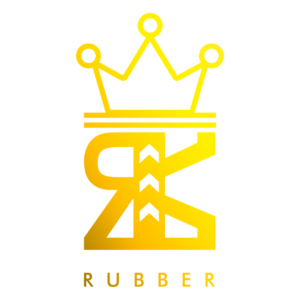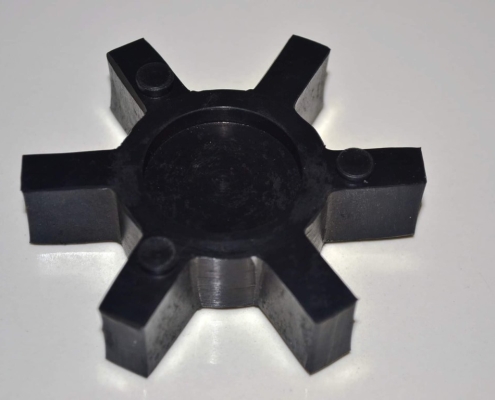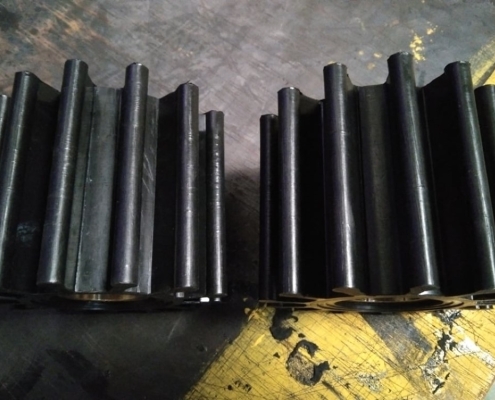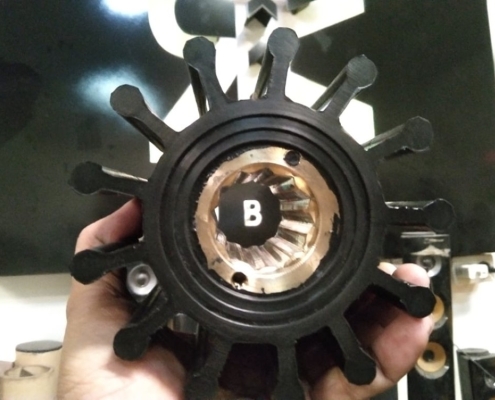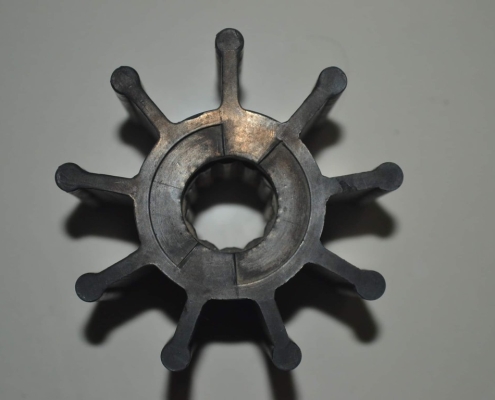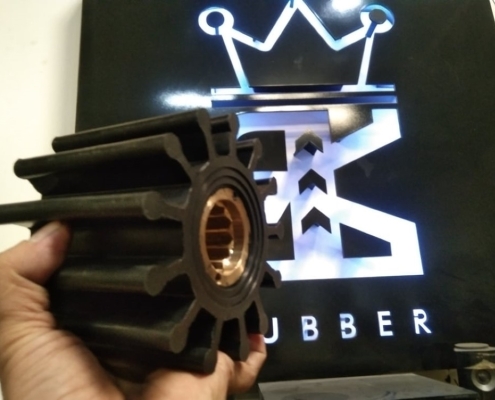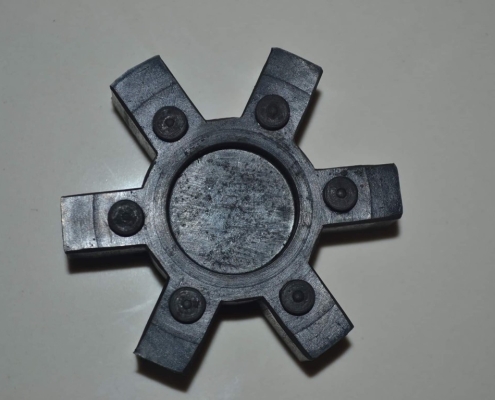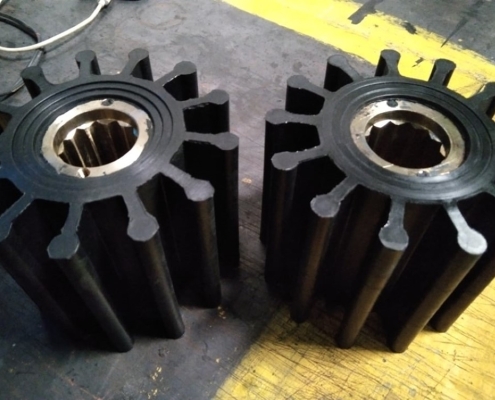Rubber Impeller
A rubber impeller is vital to mechanical equipment such as a compressor or pump. It is a small propeller usually made from alloy or metal that rotates quickly to increase the pressure and velocity of the fluid inside the pump to be released immediately. We mainly produced rubber-type impellers because of their resiliency, flexibility, and durability. In the long run, the metal-type impeller is more expensive because it has a shorter life expectancy due to corrosion than a rubber-type, which has exceptional resistance against any fluid or chemicals.
History
The history of the rubber impeller is intrinsically linked to developments in mechanical engineering and production techniques. This remarkable invention has been in use for more than a century, and its influence on modern industry is undeniable.
It was first developed in the late 1800s as an alternative to metal impellers used since the industrial revolution. By replacing metal with rubber, engineers created a highly effective device capable of withstanding extreme temperatures and pressures without compromising performance or efficiency. The introduction of this technology revolutionized mechanical applications across numerous industries, including automotive, aerospace, and engineering.
Since then, rubber manufacturing advancements have enabled further design refinements that allow for even greater strength and durability while reducing noise levels.
Maintenance
Rubber impellers are vital to many industrial and commercial processes, providing precision motion control for various applications. To ensure your rubber impeller continues to provide reliable service, it is essential to take the proper steps for maintenance. With care and regular inspection, a rubber impeller can last for years with the minimal repair or replacement needs.
Proper lubrication is essential in keeping your rubber impeller working correctly. You should use only the lubricant specified by the manufacturer, as this will help ensure optimal performance and longevity. Additionally, check regularly for signs of dirt buildup on surfaces which could cause material abrasion over time and affect performance. Periodically inspect all components, such as seals and O-rings; replace when necessary to avoid potential leakage or breakage down the line.
Types of Impeller
Close Impeller
A type of rubber impeller that is widely used in the industrial sector. A closed impeller features a design with blades on either side of the hub instead of an open impeller with blades surrounding the hub’s entire circumference. Closed impellers are often preferred over open impellers as they are less prone to cavitation and require less power. The construction of a rubber closed impeller consists of several components, including an elastomeric material such as neoprene or nitrile rubber and various reinforcements like fibers, fabrics, metal inserts and more.
The combination of these materials provides an excellent balance between strength and flexibility allowing it to meet specific application requirements. In addition, this type of rubber impeller provides good wear resistance while reducing noise levels during operation due to its softer material composition.
Semi-closed impeller
A semi-closed impeller is a type of rubber impeller that has been developed for use in various kinds of machinery. It has several advantages over traditional open impellers and is a popular choice for many applications.
Due to its improved flow characteristics, the semi-closed impeller boasts increased efficiency compared to an open class. Additionally, the design means it is less likely to be damaged by debris and particles present within the fluid being pumped. This makes it an attractive option for industrial applications where foreign objects are present in the liquid, such as water pumps or oil pumps.
As well as offering superior performance, this type of rubber impeller also has distinct advantages regarding maintenance and repair costs.
Screw impeller
A screw impeller is a rubber impeller used in many industrial applications. It offers a unique rotating action that increases efficiency and performance. The design of the impeller is unique and can quickly mix, stir, aerate, or agitate fluids, leading to better production results.
The benefits of the screw impeller are numerous – it can generate higher flow rates than other traditional types of impellers, making it attractive for many industries. Additionally, its easy installation process reduces downtime and costs associated with maintenance. This means more efficient operations in plants where this impeller is utilized.
Due to their superior performance capacity and reliable construction, screw impellers are becoming increasingly popular amongst various sectors such as chemical processing plants, water treatment facilities, food processing centers and marine systems.
Open impeller
An open impeller is essential in many industrial and commercial submersible pumps. It is a type of rubber impeller that helps to create the necessary pressure and suction for water and other liquids to move through the pump. This impeller draws water into the system, creating a vacuum effect to generate force.
It is designed with blades or vanes that allow direct contact between the motor’s rotating shaft and the surrounding liquid, providing improved efficiency over other rubber impellers. They also provide lower overall power consumption due to their increased effectiveness in moving fluids. Open impellers have been used for decades in various industries such as sewage pumping, groundwater extraction and firefighting operations due to their dependable performance even under harsh conditions.
Features of Rubber Impeller
- Has strong resistance to corrosion
- Very durable
- Long life expectancy than a metal/alloy
- Good tear and wear resistance
- Can withstand high and low working temperatures
- Made from non-hazardous compound materials
- Easy to install and maintenance-free
Kindly contact our sales team to know more about the rubber impeller and other customized rubber-related products.
Rubber Impeller Quick Details:
Application Type: Food and Beverage, Mechanical Engineering, Pharmaceutical, Agricultural, Industrial, Manufacturing, and Automotive
Materials: Synthetic Rubber, Natural Rubber, Silicone Rubber
Color: Plain black; may vary
Variants: Open, closed, and Semi-closed impeller
Purpose: help to increase the velocity and pressure inside a pump to transfer any fluid or air from one place to another
Below are some of the actual products and applications.
